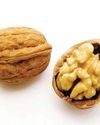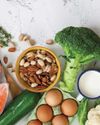Life is full of ups and downs. But when the downs last for weeks or months at a time - or keep you from living your regular life - you may have an underlying hormonal imbalance that needs to be addressed.

Life is full of ups and downs. But when the downs last for weeks or months at a time— or keep you from living your regular life—you may have an underlying hormonal imbalance that needs to be addressed.
Depression involves the body, mood, and thoughts, and it affects the way you eat and sleep, the way you feel about yourself, and the way you think about life. It’s also a gender thing: women in North America are nearly twice as likely as men to be diagnosed with depression. Approximately 12 million women in the U.S. experience clinical depression each year. It occurs most frequently in women aged 25 to 44.
There is often no single cause of depression, but a multitude of factors can contribute, including:
Hormonal imbalances—Menstrual cycle changes, pregnancy, low thyroid, miscarriage, postpartum, perimenopause, and menopause.
Stress—Stressful life events such as trauma, loss of a loved one, a bad relationship, work, and caring for children and aging parents.
Medical illness—Dealing with serious conditions such as stroke, heart attack, or cancer.
Environmental toxins—Heavy metals (lead, mercury, cadmium, arsenic, nickel, and aluminum), as well as pesticides, formaldehydes, and benzenes.)
Underlying Causes
Depression has been linked to a variety of hormonal and health issues, including:
Perimenopause/Menopause - The Massachusetts Women’s Health Study observed that rates of depression begin to decrease as women move through perimenopause into menopause, and are lowest for women who have been postmenopausal for at least 27 months. These results show that depression is moderately associated with perimenopause, and that the depression is transient and may decline about two years after menopause.
Diese Geschichte stammt aus der May 2016-Ausgabe von Better Nutrition.
Starten Sie Ihre 7-tägige kostenlose Testversion von Magzter GOLD, um auf Tausende kuratierte Premium-Storys sowie über 8.000 Zeitschriften und Zeitungen zuzugreifen.
Bereits Abonnent ? Anmelden
Diese Geschichte stammt aus der May 2016-Ausgabe von Better Nutrition.
Starten Sie Ihre 7-tägige kostenlose Testversion von Magzter GOLD, um auf Tausende kuratierte Premium-Storys sowie über 8.000 Zeitschriften und Zeitungen zuzugreifen.
Bereits Abonnent? Anmelden

Strike A Healing Chord
Soothe your mind, body, and spirit with three simple sound therapy techniques for self-care.

Laura's Gourmet Granola
If you’re tired of granola that’s more candy than health food, chef and entrepreneur Laura Briscoe’s offerings are just what you’ve been looking for.

News Bites
Caffeine, Peanuts, CoQ10, and Iron Deficiency.

The Overlooked Keys to a Healthy Gallbladder
Keep your bile thin and free-flowing by focusing on supportive foods, supplements, and physical activity.

Go Nutty This Year
This über-healthy alternative to traditional lattes features homemadewalnut “mylk,” along with antioxidant-rich green tea and berries.

The Three Stages of Infection
What you need before, during and after an illness, and why you need different fixes for each stage.
Taming the Flames
How to beat back chronic inflammation and protect yourself from related disease.

Deconstructing the Flexitarian Diet
How being a part-time vegan can make you healthier.

Brain Regain
How one senior used a leptin-focused diet (high-fat, no carbs) to recover from a cognitive injury, reconnect with his family, and reclaim his health.

Healthy Aging— Head To Toe
Science-backed supplements to protect all your parts.